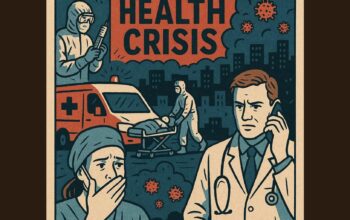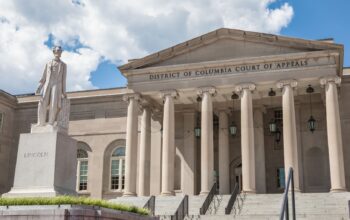In a 51-48 vote early Thursday morning, the Senate approved President Donald Trump’s demand to rescind $9 billion in previously approved federal spending, including $1.1 billion slashed from public broadcasting. The move targets the Corporation for Public Broadcasting (CPB), which funds NPR and PBS and helps sustain more than 1,500 local public radio and television stations nationwide.
Only two Republicans, Sens. Susan Collins of Maine and Lisa Murkowski of Alaska, voted against the bill. Sen. Tina Smith (D-Minn.) was hospitalized and did not vote. The House must now approve the bill by Friday to finalize the cuts under the arcane “rescissions” process being used — a rare maneuver that hasn’t succeeded in decades.
The package restores funding for one key program — the President’s Emergency Plan for AIDS Relief (PEPFAR) — but it leaves public media fully exposed. A last-ditch amendment by Collins and Murkowski to restore most of the CPB funding failed.
The White House has labeled NPR and PBS as biased and “radical,” and the decision to eliminate their funding follows a years-long campaign by Trump and his allies to delegitimize independent news coverage. The administration has portrayed public broadcasting as a partisan operation, a view rejected by both networks and public media advocates.
The cuts would impact federal funding from October 2025 through September 2027, and public media stations are already preparing for layoffs and reduced programming. CPB receives $535 million annually and serves as the financial foundation for stations in rural and underserved communities. Those stations often rely on federal support to operate broadcast towers and cover local news.
“For every public dollar provided, stations raise nearly $7 dollars from donors, including state and local governments, universities, businesses, foundations, and individual viewers and listeners,” CPB has reported.
Without that public dollar, small stations may shut down entirely. Even larger affiliates are likely to reduce news coverage and cut programming, creating a ripple effect that affects NPR’s national shows, such as “Morning Edition,” and PBS’s children’s programming.
Fred Rogers Productions, which produces “Daniel Tiger’s Neighborhood,” is among the nonprofits warning of major disruptions.
“If the stations have fewer dollars to spend, then producers will eventually feel the pinch,” the organization said.
NPR told listeners that eliminating federal funding would lead to “fewer programs, less journalism — especially local journalism — and eventually the loss of public radio stations.”
Filmmaker Ken Burns told CBS News, “I couldn’t do any of the films I’ve done without them being on PBS.”
While opponents of public broadcasting argue the model is outdated in the era of streaming and private fundraising, local stations and media executives warn that the funding is irreplaceable in remote and low-income areas.
Anna Gomez, the lone Democrat on the Republican-controlled FCC, wrote that the move was not about budgeting but about silencing dissent.
“This isn’t about saving money,” Gomez posted. “It’s about silencing those who report the news accurately, without fear or favor.”
The defunding of public broadcasting, a long-standing goal of libertarian groups and right-wing activists, is now moving closer to reality, with the Senate’s backing and the House on deck. The impact could be felt by millions of Americans who rely on public media not just for news, but for access to culture, education, and civic life.
“Like all authoritarians, Donald Trump doesn’t like criticism or objective reporting,” Vermont Democratic Sen. Bernie Sanders asserted.
Source: Published without changes from Washington Informer Newspaper



